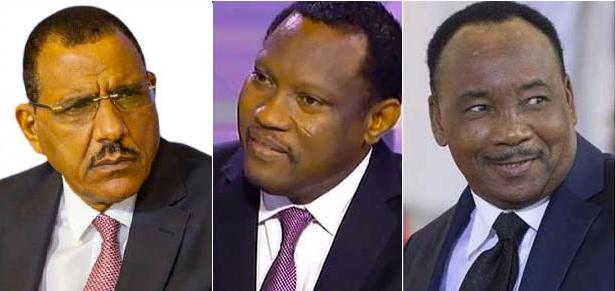
French Embassy attacked in Burkina Faso
The attacks on the French Embassy and local army headquarters in the capital of Burkina Faso, Ouagadougou, earlier this month have been linked to extremist violence. Iyad ag Ghali’s Groupe pour le soutien de l’islam et des musulmans (GSIM) — which claimed responsibility for the attack — said that the attack was revenge for the French army’s large, and highly successful, 14 February attack on GSIM fighters near Tin Zaouatene in northern Mali.
The fact that Iyad ag Ghali singled Ouagadougou out for a revenge attack has raised the possibility that the jihadists see Burkina Faso as the Sahel’s weakest member. One diplomatic source explained: ‘The attackers could not have carried out such an attack in Niamey [Niger] or Bamako [Mali] because those cities are more secure.’
According to an October 2017 government assessment, there had been 80 terrorist attacks in the country since 2015 in which 133 people had been killed. Since October, there have been several more attacks, especially in northern Burkina Faso, with the 2 March attack taking the total number of people killed to well over 150.
This double simultaneous attack as marking a new trend in terrorism in Burkina Faso, because of: its careful preparation; its operating mode; and the ultra-secure targets it was aiming for.
Burkina Faso’s army has become significantly less organised since the departure of former president Blaise Compaoré (1987-2014) in October 2014. The combination of Compaoré’s stronger armed forces and his more accommodating attitude to the armed groups may well have provided Burkina Faso with a degree of protection from jihadist attacks.
More significant, however, is that the relationship between the Burkinabé government and the Sahel’s various armed groups has changed. Burkina Faso deployed 1,000 troops along the Malian border after January 2013, and 650 troops in Mali as part of the African-led International Support Mission to Mali (AFISMA) under the Economic Community of West African States (ECOWAS). This may have put Burkina Faso in the jihadists’ firing line.
Burkina Faso’s shift in policy and relationship towards armed Islamist groups was noticed by Iyad ag Ghali and the other jihadist leaders. Compaoré’s early and more accommodative attitude towards them has given way to the current closer counter-terrorist alliance that now exists between France’s Barkhane forces and the post December 2015 Burkinabé government of President Roch Marc Christian Kaboré.
The latest attacks are likely to have two significant implications for Burkina Faso. One is that if it is proved — or believed — that the attackers did receive support from within the security forces, then the already fragile army will become more divided. The implication will be a dampening of confidence in the government and military, and perhaps increased support for the jihadists. Relations between the current authorities and the former Compaoré-era political elite will become tenser and increase the climate of suspicion in the country.
To read more, or to request a free trial of Sahara Focus, please contact our Africa Team.



